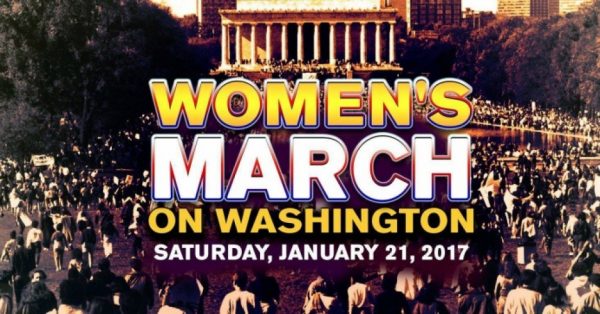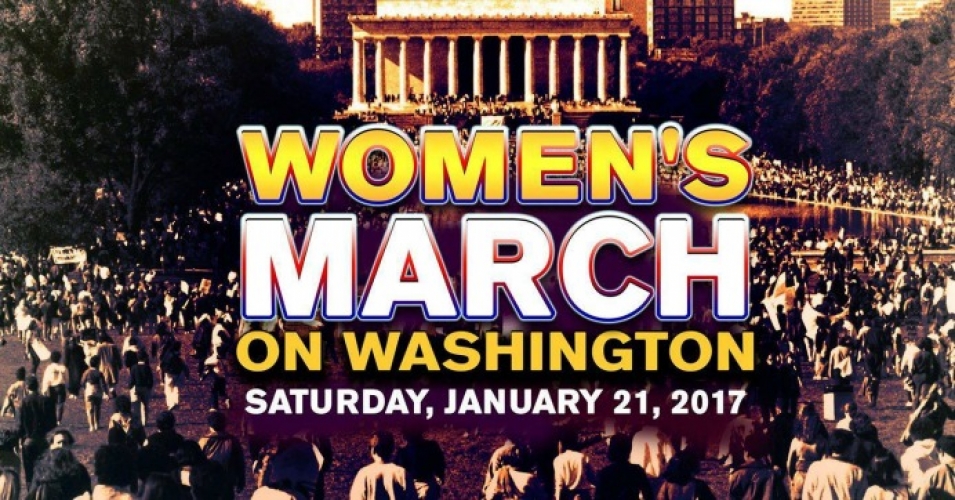
Cindy Buell has been politically active most of her life. The first campaign she worked on was George McGovern’s run for US President in 1972. It was the first time she was old enough to vote.
On 21 January this year, Buell, who moved from California to New Zealand in 2005, will march in Auckland as part of the Women’s March on Washington global movement.
“I’ve always had a passion for women’s issues in particular and this really is a time that we need to put down our lattes, pick up a sign and start marching.”
What began as a single march in Washington DC has expanded to 616 Sister Marches in US cities and around the world, including ones in Auckland, Wellington, Christchurch and Dunedin which kick off the international movement.
“You can’t just sit there and not try to make change. This is how change happens, people have to get involved,” says Buell, who, along with her family owns the Mexicali Fresh and Burger Wisconsin restaurant chains. She is one of four ex-pat Americans organising the Auckland march.
The marches are providing an impetus for hundreds of thousands of women, men and children around the world to become involved, says Aucklander Erin Ajygin.
“Part of me wishes I was in the US so that I could be more involved in fighting for what’s right and good. The march is a way to be physically visible and physically active and promote what the majority of Americans believe in: equal rights for women, civil rights for all people, rights for children, rights for healthcare, etc. I like that the march is a positive way for us to be physically involved in what’s happening in the US.”
Ajygin, who is a refugee employment liaison for the Red Cross, came to New Zealand in 2010.
“What I like about the Women’s March on Washington is that it’s a positive thing. It’s not a protest, it’s not a demonstration. The march is the beginning of what is going to be an on-going, international positive movement that will organise future campaigns and actions in support of progressive values, including women’s rights.”
Lisa Dyson agrees.
“I am grateful that many of the issues that came to the fore in the recent US election are not as much of an problem in New Zealand. But there are worrying trends in many countries – including New Zealand — around increasing inequality, blaming immigrants for social problems, a lack of action to help refugees and a lack of protection of the environment, for example. I feel confident that this movement won’t end with this march, but that this is just the beginning and it will encourage people to get involved in their communities and politically. I hope that happens in New Zealand as well.”
Dyson, a PhD student in the faculty of education at the University of Auckland, says that while she has always been politically aware she hasn’t previously been active.
“I don’t think I ever even posted on Facebook about my political views during the recent US election. I think I was afraid of offending someone. When Donald Trump was elected President, I was devastated and it just flipped a switch for me. I wanted to do something and get political. The Women’s March on Washington and the Sister Marches provided that. It is truly a grassroots, powerful global movement.”
Being politically involved is also new to Melissa Ferguson. “The march is a start for me. It’s a way for me to participate and have my voice heard and start a path towards my being more active and helping to initiate change.”
Ferguson, who moved to New Zealand from Texas in 2009, was inspired to become involved because of her daughter. “It sounds like a lot of women’s rights could be taken away and that’s not a future I want for my daughter. I’m marching for the generations of women behind me, in front of me, and with me who have not been treated equally; I’m marching for reproductive and healthcare rights and for all groups that have been marginalised.”
Buell admits that when she arrived in New Zealand, she was US-centric but soon realised the world doesn’t revolve around the US. “But then the longer I’ve been here and the more conversations I’ve with people, I have also realise that every single person in the world is concerned about what’s happening in the US. Because the US is so strong economically and militarily, what happens there impacts what happens in other countries, in one way or another.
“We need to keep our voice out there,” says Buell. “We need put on our shoes and get out there and march.”
—
Auckland marchers will gather at the US Consulate at 10.30 and will march peacefully to Myers Park where the lineup includes Alison Mau, Jacinda Ardern, Tracey Barnett, Pani Farvid and the band AK Samba. #WMAkl
Wellington marchers will gather at Parliament at 10.30 am where they will be addressed by American-born Green MP Julie Anne Genter and ChangeMakers Refugee Forum Chief Executive Tayyaba Khan, before peacefully marching to Wellington Civic Square where they will join Love Trumps Hate, a festival celebrating democratic values. #WMWelly
Christchurch marchers will gather at Victoria Square at 10.30 am and march via the Kate Sheppard Memorial to Cathedral Square. Speakers include Christchurch East MP Poto Williams. #WMChch
Dunedin marches meet at the Upper Octagon at 10.30 for a rally. Speakers include Labour South MP Claire Curran; music will be provided by Matt Langley Heather LaDell, Aroha Ngatai and Pam Morrison. #WMDunedin
For more information on the Women’s March on Washington – New Zealand, see www.facebook/
Please follow us on Twitter https://twitter.com/
@WMNewZealand
You can find information about the New Zealand marches through these links:
https://www.facebook.com//
Eventbrite for Auckland March
Eventbrite for Wellington March
Eventbrite for Christchurch March
And about the Women’s March on Washington globally:
WEBSITE: https://www.
FACEBOOK PAGE: https://www.facebook.
TWITTER: https://twitter.com/
INSTAGRAM: http://www.





